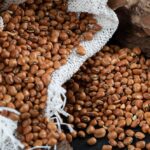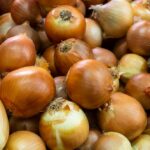Home composting is an excellent way for South African farmers to reduce waste, improve soil health, and cut down on fertilizer costs. However, while composting may seem straightforward, many beginners make mistakes that hinder the process or produce low-quality compost. Here are ten common mistakes in home composting and how to avoid them to achieve rich, nutrient-dense compost for your farm.
Adding the Wrong Ingredients
One of the most common mistakes is adding non-compostable materials, such as plastics, metals, or processed foods. These items do not decompose and can introduce toxins into your compost. Additionally, including meat, dairy, or oily foods can attract pests and slow decomposition.
To fix this, stick to organic materials such as fruit and vegetable scraps, grass clippings, leaves, and small amounts of cardboard or paper. Avoid diseased plants, invasive weeds, and chemically treated materials.
Not Balancing Green and Brown Materials
Successful composting requires the right balance of green (nitrogen-rich) and brown (carbon-rich) materials. Too much green material leads to a smelly, soggy pile, while too much brown material slows decomposition.
Ensure a ratio of roughly two-thirds brown materials (dry leaves, cardboard) to one-third green materials (vegetable scraps, grass clippings).
Failing to Turn the Pile Regularly
Many farmers neglect to turn their compost pile, which leads to poor aeration and slow decomposition. Without oxygen, the pile may become anaerobic, resulting in unpleasant odors.
Turn your compost pile every one to two weeks to improve aeration and mix materials evenly. This promotes faster decomposition and prevents odor buildup.
Letting the Pile Get Too Wet or Too Dry
Moisture is critical for composting, but too much or too little water can stall the process. A soggy pile becomes compacted and anaerobic, while a dry pile slows microbial activity.
Keep your compost pile as damp as a wrung-out sponge. If it’s too dry, add water or moist greens. If it’s too wet, mix in more dry browns like cardboard or sawdust.
Starting with a Pile That’s Too Small
A small compost pile may not generate enough heat to break down materials effectively. Heat is essential for killing pathogens and weed seeds while speeding up decomposition.
Aim for a pile at least one cubic meter in size. This ensures sufficient heat generation and better microbial activity, especially in cooler climates.
Ignoring the Importance of Shredding
Large pieces of organic matter take much longer to decompose, delaying the availability of finished compost.
Shred or chop materials into smaller pieces before adding them to your compost pile. For example, cut up fruit peels, break down cardboard, and trim large branches into smaller chunks.
Adding Too Many Citrus Peels or Onion Scraps
While citrus peels and onion scraps are compostable, adding them in large amounts can make your pile too acidic. This slows down decomposition and may deter earthworms and beneficial microbes.
Add citrus and onion scraps in moderation, and balance acidity by adding plenty of brown materials like leaves or paper.
Not Protecting the Compost from Pests
Unprotected compost piles can attract pests like rodents, birds, or insects, especially if you add meat or dairy products.
Use a secure compost bin with a lid or cover your pile with a layer of soil or mulch. Avoid adding pest-attracting items like meat or oily foods.
Being Impatient with the Process
Many beginners expect compost to be ready within a few weeks, but composting is a gradual process that takes time. Impatience often leads to using unfinished compost, which can harm plants.
Give your compost three to six months to fully decompose. Finished compost should be dark, crumbly, and smell earthy.
Ignoring Seasonal Adjustments
South Africa’s diverse climates can affect the composting process. In winter, cooler temperatures may slow decomposition, while hot summers can dry out your pile.
During winter, insulate your compost pile with straw or leaves to retain heat. In summer, monitor moisture levels closely and add water if the pile dries out.
Home composting is a valuable practice for South African farmers, offering an eco-friendly way to enrich soil and reduce waste. By avoiding these common mistakes, you can create high-quality compost that enhances crop growth and contributes to sustainable farming. Focus on maintaining the right balance of ingredients, turning the pile regularly, and adapting to seasonal changes to ensure success. With patience and consistency, you’ll transform your organic waste into a powerful resource for your farm.







